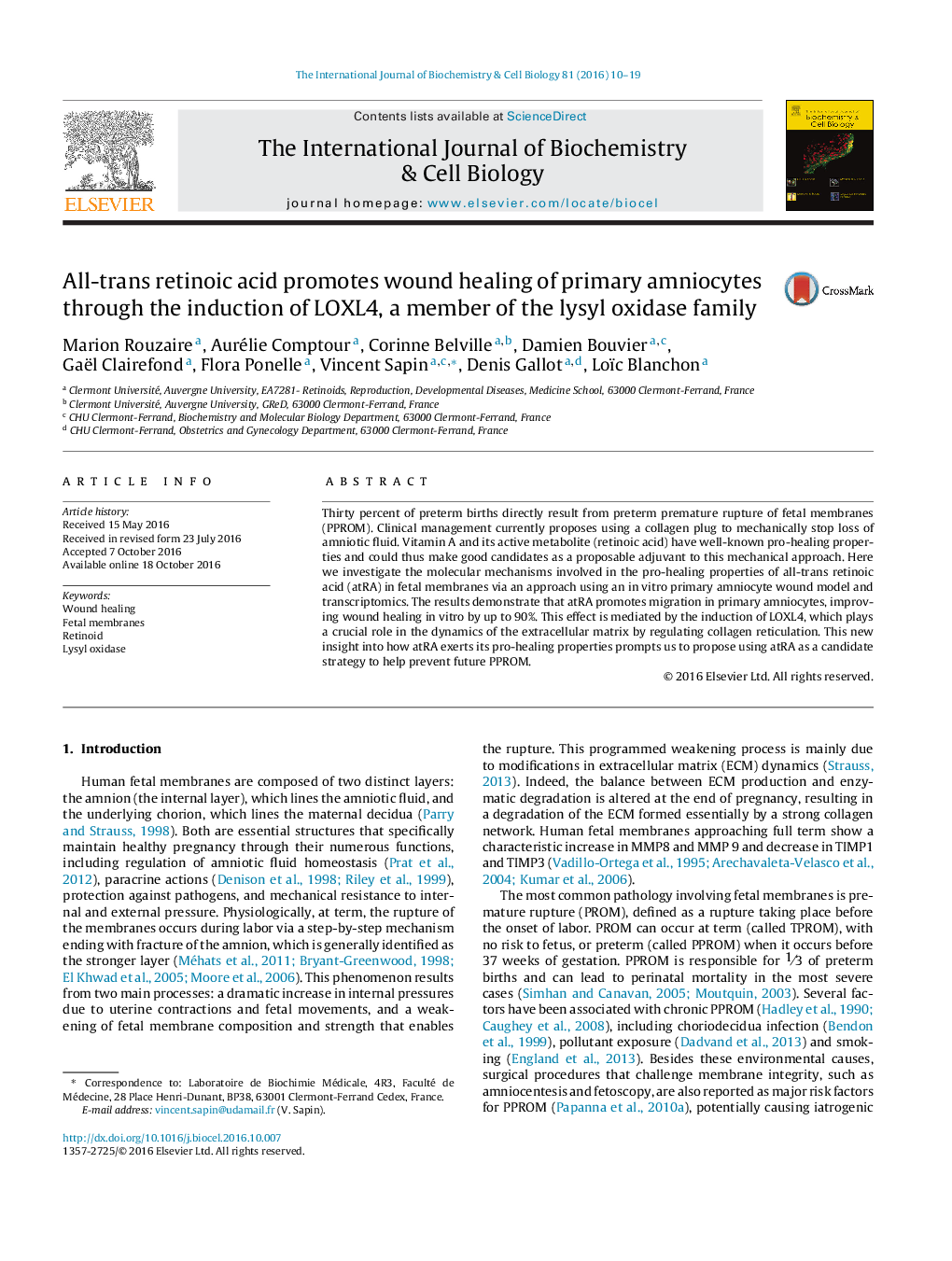| Article ID | Journal | Published Year | Pages | File Type |
|---|---|---|---|---|
| 5511530 | The International Journal of Biochemistry & Cell Biology | 2016 | 10 Pages |
Thirty percent of preterm births directly result from preterm premature rupture of fetal membranes (PPROM). Clinical management currently proposes using a collagen plug to mechanically stop loss of amniotic fluid. Vitamin A and its active metabolite (retinoic acid) have well-known pro-healing properties and could thus make good candidates as a proposable adjuvant to this mechanical approach. Here we investigate the molecular mechanisms involved in the pro-healing properties of all-trans retinoic acid (atRA) in fetal membranes via an approach using an in vitro primary amniocyte wound model and transcriptomics. The results demonstrate that atRA promotes migration in primary amniocytes, improving wound healing in vitro by up to 90%. This effect is mediated by the induction of LOXL4, which plays a crucial role in the dynamics of the extracellular matrix by regulating collagen reticulation. This new insight into how atRA exerts its pro-healing properties prompts us to propose using atRA as a candidate strategy to help prevent future PPROM.
